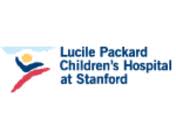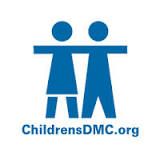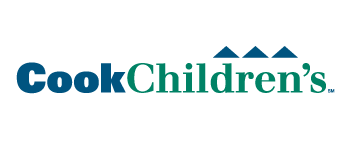A Trial of Epigenetic Priming in Patients With Newly Diagnosed Acute Myeloid Leukemia
| Status: | Recruiting |
|---|---|
| Conditions: | Blood Cancer, Blood Cancer, Blood Cancer, Blood Cancer, Hematology |
| Therapuetic Areas: | Hematology, Oncology |
| Healthy: | No |
| Age Range: | Any - 21 |
| Updated: | 3/7/2019 |
| Start Date: | June 15, 2017 |
| End Date: | June 2027 |
| Contact: | Tanja A. Gruber, MD, PhD |
| Email: | tanja.gruber@stjude.org |
| Phone: | 866-278-5833 |
A Phase II Trial of Epigenetic Priming in Patients With Newly Diagnosed Acute Myeloid Leukemia
The overall aim of this study is to determine if epigenetic priming with a DNA
methyltransferase inhibitor (DMTi) prior to chemotherapy blocks is tolerable and carries
evidence of a clinical efficacy signal as determined by minimal residual disease (MRD),
event-free survival (EFS), and overall survival (OS). Tolerability for each of the agents, as
well as total reduction in DNA methylation and outcome assessments will be done to
simultaneously obtain preliminary biological and clinical data for each DMTi in parallel.
PRIMARY OBJECTIVES:
- Evaluate the tolerability of five days of epigenetic priming with azacitidine and
decitabine as a single agent DMTi prior to standard AML chemotherapy blocks.
- Evaluate the change in genome-wide methylation burden induced by five days of epigenetic
priming and the association of post-priming genome-wide methylation burden with
event-free survival among pediatric AML patients.
SECONDARY OBJECTIVES
- Describe minimal residual disease levels following Induction I chemotherapy in patients
that receive DMTi.
- Estimate the event-free survival and overall survival of patients receiving a DMTi prior
to chemotherapy courses.
methyltransferase inhibitor (DMTi) prior to chemotherapy blocks is tolerable and carries
evidence of a clinical efficacy signal as determined by minimal residual disease (MRD),
event-free survival (EFS), and overall survival (OS). Tolerability for each of the agents, as
well as total reduction in DNA methylation and outcome assessments will be done to
simultaneously obtain preliminary biological and clinical data for each DMTi in parallel.
PRIMARY OBJECTIVES:
- Evaluate the tolerability of five days of epigenetic priming with azacitidine and
decitabine as a single agent DMTi prior to standard AML chemotherapy blocks.
- Evaluate the change in genome-wide methylation burden induced by five days of epigenetic
priming and the association of post-priming genome-wide methylation burden with
event-free survival among pediatric AML patients.
SECONDARY OBJECTIVES
- Describe minimal residual disease levels following Induction I chemotherapy in patients
that receive DMTi.
- Estimate the event-free survival and overall survival of patients receiving a DMTi prior
to chemotherapy courses.
To determine tolerability, priming with DMTi (azacitidine or decitabine) will be limited to
Induction I and II during Part 1 of the study. If DMTi treatment is tolerated during Part 1,
the investigators will go on to an Expansion Phase (Part 2) that includes DMTi priming prior
to all chemotherapy blocks.
Treatment will consist of 5 blocks of conventional chemotherapy: Induction I, Induction II,
Intensification I, Intensification II, and Intensification III over approximately 5 months.
RANDOMIZATION: Patients will be randomized to receive one of two DMTi (azacitidine or
decitabine) for 5 days prior to Induction I. Intrathecal (ITHMA) treatments will be given
right before treatment on this study or on Day 1 of Induction I treatment. Leucovorin will be
given 24-30 hours following ITHMA.
INDUCTION I CHEMOTHERAPY: Patients receive cytarabine, daunorubicin, and etoposide.
INDUCTION II CHEMOTHERAPY; Patients receive their assigned DMTi for 5 days followed by
fludarabine, cytarabine, G-CSF, and idarubicin.
Patients are then evaluated and assigned to either the low-risk arm, intermediate-risk arm,
or the high-risk arm for Intensification therapy.
Patients with ≥ 5% blasts following Induction II will be considered refractory and will go
off therapy. The rare high risk patient with an MRD < 0.1% following Induction I may proceed
directly to stem cell transplant (SCT) after Induction II - if a suitable donor is available
and the transplant can be performed without delay.
INTENSIFICATION I CHEMOTHERAPY - LOW-RISK AML, INTERMEDIATE-RISK AML, and HIGH-RISK AML with
no donor: Patients receive cytarabine and etoposide. After administration of 5 days of a DMTi
prior to Inductions I and II satisfies a tolerability determination criterion, patients will
also receive their randomly assigned DMTi for five days prior to cytarabine and etoposide.
INTENSIFICATION II CHEMOTHERAPY - LOW RISK AML, INTERMEDIATE-RISK AML, and HIGH-RISK AML with
no donor: Patients receive mitoxantrone and cytarabine. After administration of 5 days of a
DMTi prior to Inductions I and II satisfies a tolerability determination criterion, patients
will also receive their randomly assigned DMTi for five days prior to mitoxantrone and
cytarabine.
INTENSIFICATION I CHEMOTHERAPY - HIGH-RISK AML with a donor: Patients receive mitoxantrone
and cytarabine followed by stem cell transplant (SCT). Treatment related AML patients who
have a donor but are not able to receive a SCT without delay will proceed to HR
Intensification III and receive erwinia asparaginase and cytarabine. After administration of
5 days of a DMTi prior to earlier courses satisfies a tolerability criterion, patients will
also receive their randomly assigned DMTi for five days prior to mitoxantrone and cytarabine
or erwinia asparaginase and cytarabine.
Treatment related AML patients that are not able to receive a SCT should go off treatment
following Intensification II.
INTENSIFICATION III CHEMOTHERAPY - INTERMEDIATE-RISK AML and HIGH-RISK AML with no donor:
Patients receive erwinia asparaginase and cytarabine. After administration of 5 days of a
DMTi prior to earlier courses satisfies a tolerability criterion, patients will also receive
their randomly assigned DMTi for five days prior to erwinia asparaginase and cytarabine.
Induction I and II during Part 1 of the study. If DMTi treatment is tolerated during Part 1,
the investigators will go on to an Expansion Phase (Part 2) that includes DMTi priming prior
to all chemotherapy blocks.
Treatment will consist of 5 blocks of conventional chemotherapy: Induction I, Induction II,
Intensification I, Intensification II, and Intensification III over approximately 5 months.
RANDOMIZATION: Patients will be randomized to receive one of two DMTi (azacitidine or
decitabine) for 5 days prior to Induction I. Intrathecal (ITHMA) treatments will be given
right before treatment on this study or on Day 1 of Induction I treatment. Leucovorin will be
given 24-30 hours following ITHMA.
INDUCTION I CHEMOTHERAPY: Patients receive cytarabine, daunorubicin, and etoposide.
INDUCTION II CHEMOTHERAPY; Patients receive their assigned DMTi for 5 days followed by
fludarabine, cytarabine, G-CSF, and idarubicin.
Patients are then evaluated and assigned to either the low-risk arm, intermediate-risk arm,
or the high-risk arm for Intensification therapy.
Patients with ≥ 5% blasts following Induction II will be considered refractory and will go
off therapy. The rare high risk patient with an MRD < 0.1% following Induction I may proceed
directly to stem cell transplant (SCT) after Induction II - if a suitable donor is available
and the transplant can be performed without delay.
INTENSIFICATION I CHEMOTHERAPY - LOW-RISK AML, INTERMEDIATE-RISK AML, and HIGH-RISK AML with
no donor: Patients receive cytarabine and etoposide. After administration of 5 days of a DMTi
prior to Inductions I and II satisfies a tolerability determination criterion, patients will
also receive their randomly assigned DMTi for five days prior to cytarabine and etoposide.
INTENSIFICATION II CHEMOTHERAPY - LOW RISK AML, INTERMEDIATE-RISK AML, and HIGH-RISK AML with
no donor: Patients receive mitoxantrone and cytarabine. After administration of 5 days of a
DMTi prior to Inductions I and II satisfies a tolerability determination criterion, patients
will also receive their randomly assigned DMTi for five days prior to mitoxantrone and
cytarabine.
INTENSIFICATION I CHEMOTHERAPY - HIGH-RISK AML with a donor: Patients receive mitoxantrone
and cytarabine followed by stem cell transplant (SCT). Treatment related AML patients who
have a donor but are not able to receive a SCT without delay will proceed to HR
Intensification III and receive erwinia asparaginase and cytarabine. After administration of
5 days of a DMTi prior to earlier courses satisfies a tolerability criterion, patients will
also receive their randomly assigned DMTi for five days prior to mitoxantrone and cytarabine
or erwinia asparaginase and cytarabine.
Treatment related AML patients that are not able to receive a SCT should go off treatment
following Intensification II.
INTENSIFICATION III CHEMOTHERAPY - INTERMEDIATE-RISK AML and HIGH-RISK AML with no donor:
Patients receive erwinia asparaginase and cytarabine. After administration of 5 days of a
DMTi prior to earlier courses satisfies a tolerability criterion, patients will also receive
their randomly assigned DMTi for five days prior to erwinia asparaginase and cytarabine.
INCLUSION CRITERIA:
- Diagnostic criteria: Patients must have one of the following diagnoses:
- Acute myeloid leukemia fulfilling the criteria of the WHO Classification (see
Appendix I), or
- >5% but < 20% marrow myeloblasts and evidence of a clonal de novo AML genetic
abnormality [e.g., t(8;21), inv(16), t(9;11)], or
- Myeloid sarcoma (also referred to as extramedullary myeloid tumor, granulocytic
sarcoma, or chloroma), with or without evidence of a leukemia process in the bone
marrow or peripheral blood, with confirmation of myeloid differentiation, or
- High grade myelodysplastic syndrome (MDS) with greater than 5% blasts, or
- Patients with treatment related myeloid neoplasms including AML and MDS, provided
their cumulative anthracycline dose has not exceeded 230 mg/m2 doxorubicin
equivalents.
- Other criteria - Patients must meet all the following criteria:
- Age > 28 days and < 22 years at time of study entry inclusive, and
- No prior therapy for this malignancy except for one dose of intrathecal therapy
and the use of hydroxyurea or low-dose cytarabine (100-200 mg/m2 per day for one
week or less for hyperleukocytosis), and
- Written informed consent according to institutional guidelines, and
- Female patients of childbearing potential must have a negative pregnancy test
within 2 weeks prior to enrollment, and
- Male and female participants of reproductive potential must use an effective
contraceptive method during the study and for a minimum of 6 months after study
treatment.
EXCLUSION CRITERIA:
- Down syndrome
- Acute promyelocytic leukemia (APL)
- BCR-ABL1 chronic myeloid leukemia in blast crisis (CML-BC)
- Juvenile myelomonocytic leukemia (JMML)
- Fanconi anemia (FA)
- Kostmann syndrome
- Shwachman syndrome
- Other bone marrow failure syndromes or low grade (<5% bone marrow blasts) MDS.
- Use of concomitant chemotherapy, radiation therapy, or immunotherapy other than as
specified in the protocol.
- Use of investigational agents within 30 days or any anticancer therapy for this
malignancy within 2 weeks before study entry with the exception of IT therapy,
hydroxyurea, or low-dose cytarabine as specified in the protocol document. The patient
must have recovered from all acute toxicities from any previous therapy.
- Systemic fungal, bacterial, viral, or other infection not controlled (defined as
exhibiting ongoing signs/symptoms related to the infection and without improvement,
despite appropriate antibiotics or other treatment).
- Pregnant or lactating.
- Any significant concurrent disease, illness, or psychiatric disorder that would
compromise patient safety or compliance, interfere with consent, study participation,
follow up, or interpretation of study results.
- Prior chemotherapy, with the exception of hydroxyurea or low-dose cytarabine as
specified in the protocol document. The patient must have recovered from all acute
toxicities from any previous therapy.
- Patients with treatment related myeloid neoplasms with cumulative anthracyclines
greater than 230 mg/m2 doxorubicin equivalents.
We found this trial at
9
sites
725 Welch Rd
Palo Alto, California 94304
Palo Alto, California 94304
(650) 497-8000

Principal Investigator: Norman J. Lacayo, MD
Phone: 650-497-8953
Lucile Packard Children's Hospital Stanford University Stanford Children's Health is the only network in the...
Click here to add this to my saved trials
1500 E Duarte Rd
Duarte, California 91010
Duarte, California 91010
(626) 256-4673

Principal Investigator: Weili Sun, MD,PhD
Phone: 800-826-4673
City of Hope Comprehensive Cancer Center City of Hope is a leading research and treatment...
Click here to add this to my saved trials
9300 Valley Children's Pl
Madera, California 93720
Madera, California 93720
(559) 353-3000

Principal Investigator: Faisal Razzaqi, MD
Phone: 866-353-5437
Children's Hospital Central California The Children's Hospital Central California is a not-for-profit, state-of-the-art children’s hospital...
Click here to add this to my saved trials
262 Danny Thomas Pl
Memphis, Tennessee 38105
Memphis, Tennessee 38105
(901) 495-3300

Principal Investigator: Tanja A. Gruber, MD, PhD
Phone: 866-278-5833
St. Jude Children's Research Hospital St. Jude is unlike any other pediatric treatment and research...
Click here to add this to my saved trials
1201 W La Veta Ave
Orange, California 92868
Orange, California 92868
(714) 997-3000

Principal Investigator: Jamie Frediani, MD
Phone: 714-509-4348
Children's Hospital of Orange County For more than 45 years, CHOC Children’s has been steadfastly...
Click here to add this to my saved trials
Click here to add this to my saved trials
3901 Beaubien St
Detroit, Michigan 48201
Detroit, Michigan 48201
(313) 745-5437

Principal Investigator: Meret Henry, MD
Phone: 301-745-5237
Children's Hospital of Michigan Since 1886, the Children's Hospital of Michigan has been dedicated to...
Click here to add this to my saved trials
801 7th Avenue
Fort Worth, Texas 76104
Fort Worth, Texas 76104
(682) 885-4000

Principal Investigator: Kenneth M. Heym, MD
Phone: 682-885-4007
Cook Children's Medical Center Cook Children's Health Care System is a not-for-profit, nationally recognized pediatric...
Click here to add this to my saved trials
San Diego, California 92123
Principal Investigator: Deborah Schiff, MD
Phone: 858-966-5983
Click here to add this to my saved trials